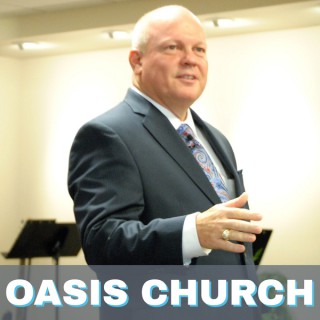Podcasts about grace part
- 1,540PODCASTS
- 6,466EPISODES
- 38mAVG DURATION
- 1DAILY NEW EPISODE
- Feb 11, 2026LATEST
POPULARITY
Categories
Best podcasts about grace part
Latest news about grace part
- Disagreeing, with Grace (Part 1) The Aquila Report - Jul 30, 2025
- Heidelminicast: Ordinary Means Ordinary (4): The American Evangelical Fall From the Means of Grace (Part 3) The Heidelblog - Dec 14, 2024
Latest podcast episodes about grace part
From the very beginning, God's intention for humanity was not shame but wholeness.In this message from our In the Beginning series, we return to Genesis to rediscover the life we were made for. Scripture gives us a vision of a world where humanity lived in delight with God — fully known, fully loved, and unashamed. Genesis 3 then reveals what went wrong: sin is not just breaking rules, it is breaking trust and trying to live life apart from God.This teaching reminds us why life often feels harder than it should and points us back to hope. Though delight was disrupted, God has not moved away from us. Through gratitude, grace, and a longing for restoration, we are invited to return to trust, healing, and the wholeness only He provides.You were not created to hide from God.You were created to walk with Him.And in returning to Him, life becomes whole again.
New Hope Ministries Senior Pastor Grant Thigpen 7675 Davis Blvd Naples, FL 34104 facebook.com/newhopenaples facebook.com/pastorgrantthigpen newhopenaples.com 239.348.0122
Join Pastor Landen Bosman for part 5 of our series, "Grace Upon Grace!"
عين النعمه - الجزء الأول
Join Pastor Josh Moreno for part 4 of our series, "Grace Upon Grace!"
Join Pastor Hennie Bosman for part 3 of our series, "Grace Upon Grace!"
Grow In Grace (Part 5) - Pastor Stacey Shiflett
Message by Pastor Stacey ShiflettText: Ephesians 2January 11, 2026 - 11AM
Habits of Grace, Part 3: Drift or Delight | Psalm 1
Questions? Comments? Prayer Requests? Let us know: http://cc.gshep.us Stay connected with your Good Shepherd Family by downloading the FREE Church Center App: http://churchcenter.gshep.us Give online: http://give.gshep.us
Krishna's "coincidences" didn't calm down—they escalated. Part Two of Meet the Pilgrims picks up right where the last episode left off: real people, real spiritual detours, and that unmistakable moment when you stop chasing "success" and start getting redirected by grace. Live from Govardhan Eco Village, this continuation brings even kirtanf the Wisdom of the Sages pilgrimage into view—hardcore kids from the punk scene, yoga teachers, musicians, academics, kirtan leaders, and seekers who thought they were just "improving themselves"… until bhakti started improving them. And sometimes it's a former corporate success story singing kirtan, wandering musicians Googling "kirtan near me" and ending up singing for Radhanath Swami, and a PhD student realizing the ladder of achievement was leaning against the wrong wall. And it's not just about "how I got here." It's about what happens after you arrive—when humility opens the channel, association does its work, and spiritual life stops being theory and becomes transformation. Sometimes the miracle is a "secret temple." Sometimes it's a new marriage that begins with a second-date kirtan. And sometimes it's a former corporate success story singing kirtan on the streets of Mumbai because he finally meant it when he said, "Teach me how to be a devotee." ******************************************************************** LOVE THE PODCAST? WE ARE COMMUNITY SUPPORTED AND WOULD LOVE FOR YOU TO JOIN! Go to https://www.wisdomofthesages.com WATCH ON YOUTUBE: https://youtube.com/@WisdomoftheSages LISTEN ON ITUNES: https://podcasts/apple.com/us/podcast/wisdom-of-the-sages/id1493055485 CONNECT ON FACEBOOK: https://facebook.com/wisdomofthesages108 *********************************************************************
Krishna's "coincidences" didn't calm down—they escalated. Part Two of Meet the Pilgrims picks up right where the last episode left off: real people, real spiritual detours, and that unmistakable moment when you stop chasing "success" and start getting redirected by grace. Live from Govardhan Eco Village, this continuation brings even kirtanf the Wisdom of the Sages pilgrimage into view—hardcore kids from the punk scene, yoga teachers, musicians, academics, kirtan leaders, and seekers who thought they were just "improving themselves"… until bhakti started improving them. And sometimes it's a former corporate success story singing kirtan, wandering musicians Googling "kirtan near me" and ending up singing for Radhanath Swami, and a PhD student realizing the ladder of achievement was leaning against the wrong wall. And it's not just about "how I got here." It's about what happens after you arrive—when humility opens the channel, association does its work, and spiritual life stops being theory and becomes transformation. Sometimes the miracle is a "secret temple." Sometimes it's a new marriage that begins with a second-date kirtan. And sometimes it's a former corporate success story singing kirtan on the streets of Mumbai because he finally meant it when he said, "Teach me how to be a devotee." ******************************************************************** LOVE THE PODCAST? WE ARE COMMUNITY SUPPORTED AND WOULD LOVE FOR YOU TO JOIN! Go to https://www.wisdomofthesages.com WATCH ON YOUTUBE: https://youtube.com/@WisdomoftheSages LISTEN ON ITUNES: https://podcasts/apple.com/us/podcast/wisdom-of-the-sages/id1493055485 CONNECT ON FACEBOOK: https://facebook.com/wisdomofthesages108 *********************************************************************
Join Pastor Hennie Bosman for part 2 of our series, "Grace Upon Grace!"
Grow In Grace (Part 3) - Pastor Stacey Shiflett
Message by Pastor Stacey ShiflettText: 1 Peter 2January 11, 2026 - 11AM
Grow In Grace (Part 4) - Pastor Stacey Shiflett
Message by Pastor Stacey ShiflettText: 2 Peter 3:18January 11, 2026 - 5PM
Habits of Grace, Part 2: Prayer | 1 Kings 18 & 19
Questions? Comments? Prayer Requests? Let us know: http://cc.gshep.us Stay connected with your Good Shepherd Family by downloading the FREE Church Center App: http://churchcenter.gshep.us Give online: http://give.gshep.us
*Due to technical difficulties, a portion of this message is unavailable. We appreciate your grace and are grateful to share the remaining portion with you.In the first message of our Grow on Purpose series, we're learning what it means to truly grow in God's grace. Spiritual growth isn't about performance or trying harder—it's about depending on what Christ has already done for us. When we understand and embrace God's undeserved favor, it changes how we respond to failure, deepens our relationship with Him, and transforms the way we treat others. Join us as we take the first step in growing on purpose, experiencing the freedom, power, and life-changing impact of God's grace.
Pastor Bryan shares the second half of a lesson from Isaiah 44. Dr. Chapell highlights the unmerited grace of God that redeems His people. To support this ministry financially, visit: https://www.oneplace.com/donate/1286/29?v=20251111
Join Pastor Hennie Bosman for part 1 of our series, "Grace Upon Grace!"
Pastor Bryan shares a lesson from Isaiah 44. Dr. Chapell shares of the free gift of God's grace, of which we so easily assume that we disqualify ourselves. To support this ministry financially, visit: https://www.oneplace.com/donate/1286/29?v=20251111
Grow In Grace (Part 2) - Pastor Stacey Shiflett
Message by Pastor Stacey ShiflettText: 2 Peter 3:18January 4, 2026 - 5PM
Grow In Grace (Part 1) - Pastor Stacey Shiflett
Message by Pastor Stacey ShiflettText: 2 Peter 3:18January 4, 2026 - 11AM
Habits of Grace, Part 1 - Fasting: Saving Room for Something Better | Matthew 6:16-18
Questions? Comments? Prayer Requests? Let us know: http://cc.gshep.us Stay connected with your Good Shepherd Family by downloading the FREE Church Center App: http://churchcenter.gshep.us Give online: http://give.gshep.us
Romans 15:13-33 // A Church Overflowing With Grace (Part 2)
Emmanuel Baptist Church – Newington, CT – Pastor Cary Schmidt
Romans 15:13-33 // A Church Overflowing With Grace (Part 2)
Emmanuel Baptist Church - Newington, CT - Video Podcast with Pastor Cary Schmidt
Every year, the story of Christmas is told and retold, but Christmas is more than just an event…it's God in human flesh! Long after the celebrations are over and the lights have come down, the promise of Christmas still endures. In this series, God with Us, Dr. Chappell shares the real "reason for the season” and helps us to embrace the unshakable hope of Christ's birth!
Gospel Daily with Josh Weidmann The Sight-Giving Power of Grace, Part 2Series: Seeing the Light Scripture: John 9:24-41 Episode: 501 Scripture Summary: In John 9:24–41, the Pharisees question the healed man again, urging him to say that Jesus is a sinner. But he stands firm, saying, "I was blind, and now I see." He challenges their disbelief by reasoning that God doesn't listen to sinners, and that never before has anyone opened the eyes of a man born blind—clearly pointing to Jesus as being from God. Offended by his boldness, the Pharisees cast him out. Later, Jesus finds the man and reveals Himself as the Son of Man. The man believes and worships Him. Jesus then declares that He came so the blind may see and those who think they see may become blind. The Pharisees ask if they are blind too, and Jesus responds that their claim to spiritual sight makes their guilt remain. Key themes include: spiritual sight vs. spiritual blindness, bold witness under persecution, faith leading to worship, and Jesus as the one who reveals truth and brings judgment.
OUR RESPONSE TO GOD'S GRACE - PART 3 (RADIO SHOW)
Every year, the story of Christmas is told and retold, but Christmas is more than just an event…it's God in human flesh! Long after the celebrations are over and the lights have come down, the promise of Christmas still endures. In this series, God with Us, Dr. Chappell shares the real "reason for the season” and helps us to embrace the unshakable hope of Christ's birth!
Gospel Daily with Josh Weidmann The Sight-Giving Power of Grace, Part 1Series: Seeing the Light Scripture: John 9:24-41 Episode: 500 Scripture Summary: In John 9:24–41, the Pharisees question the healed man again, urging him to say that Jesus is a sinner. But he stands firm, saying, "I was blind, and now I see." He challenges their disbelief by reasoning that God doesn't listen to sinners, and that never before has anyone opened the eyes of a man born blind—clearly pointing to Jesus as being from God. Offended by his boldness, the Pharisees cast him out. Later, Jesus finds the man and reveals Himself as the Son of Man. The man believes and worships Him. Jesus then declares that He came so the blind may see and those who think they see may become blind. The Pharisees ask if they are blind too, and Jesus responds that their claim to spiritual sight makes their guilt remain. Key themes include: spiritual sight vs. spiritual blindness, bold witness under persecution, faith leading to worship, and Jesus as the one who reveals truth and brings judgment.
OUR RESPONSE TO GOD'S GRACE - PART 2 (RADIO SHOW)
Every year, the story of Christmas is told and retold, but Christmas is more than just an event…it's God in human flesh! Long after the celebrations are over and the lights have come down, the promise of Christmas still endures. In this series, God with Us, Dr. Chappell shares the real "reason for the season” and helps us to embrace the unshakable hope of Christ's birth!
OUR RESPONSE TO GOD'S GRACE - PART 1 (RADIO SHOW)
"Anticipating Grace - Part 2" Andy J. Fox - 12/14/25 11am
Pastor Andy continues in his new series, "Anticipating Grace - the Joy in an Unopened Gift." 1 Cor. 2:9 "No eye has seen, no ear has heard, no mind has conceived what God has prepared for those who love Him."
Every year, the story of Christmas is told and retold, but Christmas is more than just an event…it's God in human flesh! Long after the celebrations are over and the lights have come down, the promise of Christmas still endures. In this series, God with Us, Dr. Chappell shares the real "reason for the season” and helps us to embrace the unshakable hope of Christ's birth!
Every year, the story of Christmas is told and retold, but Christmas is more than just an event…it's God in human flesh! Long after the celebrations are over and the lights have come down, the promise of Christmas still endures. In this series, God with Us, Dr. Chappell shares the real "reason for the season” and helps us to embrace the unshakable hope of Christ's birth!
Every year, the story of Christmas is told and retold, but Christmas is more than just an event…it's God in human flesh! Long after the celebrations are over and the lights have come down, the promise of Christmas still endures. In this series, God with Us, Dr. Chappell shares the real "reason for the season” and helps us to embrace the unshakable hope of Christ's birth!
Every year, the story of Christmas is told and retold, but Christmas is more than just an event…it's God in human flesh! Long after the celebrations are over and the lights have come down, the promise of Christmas still endures. In this series, God with Us, Dr. Chappell shares the real "reason for the season” and helps us to embrace the unshakable hope of Christ's birth!
If Christ lives in you, why are you still trying to do this alone? Discussion Questions: Read John 3:36 and 5:24. What does it mean to "see life" and to have "passed out of death into life"? Read John 14:19 and react to this statement: "Because I live, you will live also." Read John 14:23. What does it mean to you to have the entire Trinity living within you? Read Romans 5:10 and react to this statement: I am reconciled by Jesus' death and saved by Jesus' life. Read Romans 8:10-11. What does "the spirit is alive because of righteousness" mean for the imputed-vs-imparted righteousness debate? Read 1 John 4:13 and 2:27. How do you understand "abiding" better because of these? Read Galatians 5:16, 25. In your own words, describe what it means to walk by the Spirit.
Romans 15:1-12 // A Church Overflowing With Grace (Part 1)
Emmanuel Baptist Church – Newington, CT – Pastor Cary Schmidt
How Close Is Your Jesus? Closer Than You've Ever Been Told. Discussion Questions: Read Romans 6:1-4. What three events were you baptized into? Is this about water baptism? If not, please explain. Read Galatians 2:20. Explain "it is no longer I who live" versus "the life I now live." Read Galatians 6:14. React to this statement: "The world has been crucified to me, and I to the world." Read Colossians 3:3-4, Ephesians 2:5-6, John 14:20, and 1 Corinthians 6:17. Focus on these four words: hidden, seated, in, and joins. What do these communicate about your closeness to God? Read Galatians 5:24. Notice that you did the crucifying this time. When did you crucify the flesh with its passions and desires? How? Read Romans 6:17, 1 Timothy 1:5, and 2 Corinthians 9:7. What do these passages have to say about your heart? Read John 1:16 and Colossians 2:9-10. React to this statement: You have received of His fullness, and in Him you have been made complete in Him.
Abounding Victory Through Amazing Grace | Part 2
In this message, Adrian Rogers shares key phrases in Romans 6 to teach us how to have victory as we walk with Christ. To support this ministry financially, visit: https://www.oneplace.com/donate/135/29?v=20251111
Abounding Victory Through Amazing Grace | Part 1
In this message, Adrian Rogers shares key phrases in Romans 6 to teach us how to have victory as we walk with Christ. To support this ministry financially, visit: https://www.oneplace.com/donate/135/29?v=20251111










































































